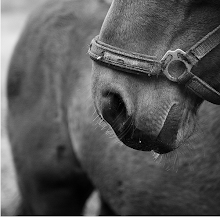
“In Del Ray we see that the mannequin was rushed to the store before the paint had a chance to dry.”
The scandal surrounding Lana Del Ray’s disastrous Saturday Night Live Performance is less about revelling in the misfortune of a fledgling starlet and more about what we are reminded of about the mechanisms of pop.
It’s not hard to imagine the board meeting where they looked at the sales of artists like Amy Winehouse and Adele - who have had the two highest selling albums of the century - and pondered the trend for tortured twentysomething divas with a reinvigorated 60s sound.
In seeing Del Ray’s Disney princess physique and ‘are they real?’ lips they had the perfect puppet to then place the classic sound mantle on top of. Even though Adele and Amy had their Svengalis, pulling the strings and creating their sound from the sidelines (Amy only ‘discovered’ her sound when she becan working with Mark Ronson) unlike Del Ray, there is a strong sense of authorship over the their words and sentiments and above all the performance conviction to pull it off.
Watching Del Ray on SNL was like watching the talent portion of a Miss World event, where you think to yourself ‘she better look good in a swimsuit’.
But pop’s shameless mass production of a successful model is as old as the genre itself. When a Winehouse drops off the charts, there grows two Duffy’s in her place. Usually the ‘original’ is of it’s own creation, while those that follow are hurried into production to make the most of the growing trend: The Beatles and The Monkeys for example. Yet in Del Ray we can see that the mannequin was rushed to the store before the paint had a chance to dry.
The reason we reject the Lana formula – which we usually swallow without too much hesitation - is because she’s claiming to be something that is not pop.
Name checking “Nirvana, Frank Sinatra, Elvis, Bod Dylan, Eminem – all the greats in every genre” (which for me will go down as the defining statement of her career) is going into dangerous territory.
She is referencing artists close to the independent heart of music in a flimsy attempt to ape what Lady Gaga has done recently: to align herself with brands that you are familiar with to know where she fits it.
The whole Lana Del Ray package seems like an exercise in clever trend forecasting. The A&R team that has put her look, music videos and public image together have presented her in a way that attempts to be hip but it’s a surface illusion that doesn’t run deep enough to allow for any real authorship. There is not a real story yearning to be told, just the feeling that there is money to be made.
The idea of complete independence is always a fallacy in popular music. Even Nirvana themselves had a team of people responsible for their global marketing and the machine that allowed the business of being Nirvana. In Del Ray it’s all ‘business’ and not enough ‘show’.
The hit of her recent album ‘Video Games’, is a lovely wailing ode to a nostalgic moment and would have been the perfect beginnings of a career that should have allowed her the chance to learn her craft while she played small shows and developed into a performing artist that was hopefully more than a pretty face and a mediocre voice. Hell, even Britney dances.
Are we so obvious as consumers that you can feed us the imitation warbling of a tragic deep south heroine of yesteryear, repackaged for Gen Y complete with all the indie trimmings of a Williamsburg artiste?
Sadly, we’ve come to accept an awful little from pop in terms of what we’ll swallow before we start to look at the ingredients. One of the most startling points that the success of Lana Del Ray makes is the maintenance of our fascination with beauty.
If Lana looked like Amy or was a bigger figure gal like Adele, she would need to be as talented to have 27 million hits on Youtube.
Popular music today is, as it ever was, a visual medium as much as any other.
SNL - The Beginning of the end:
The MTV interview:

